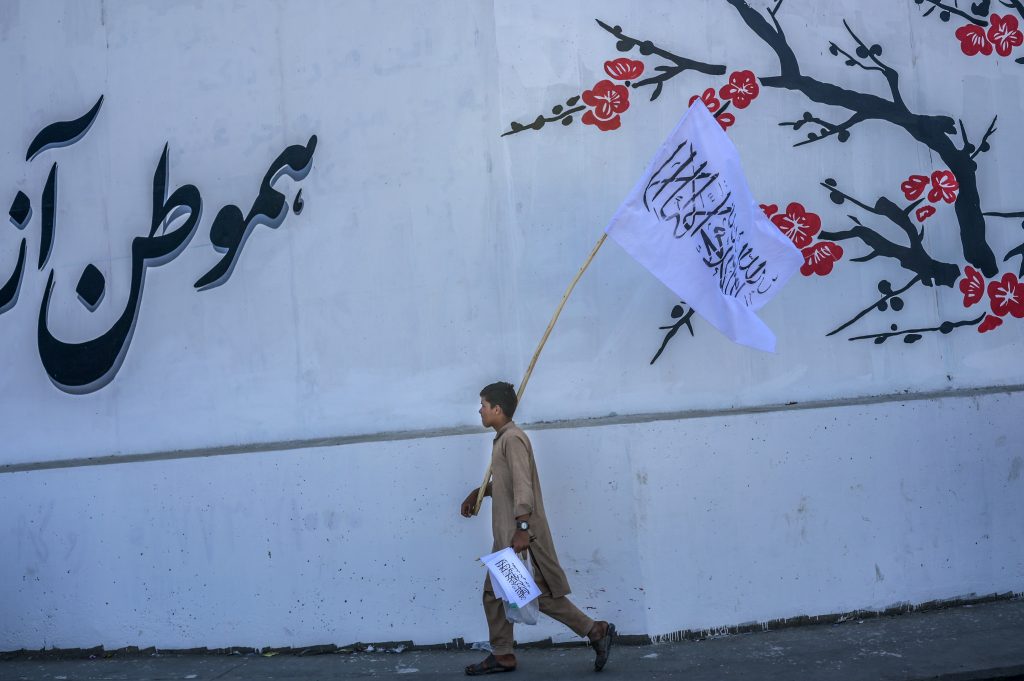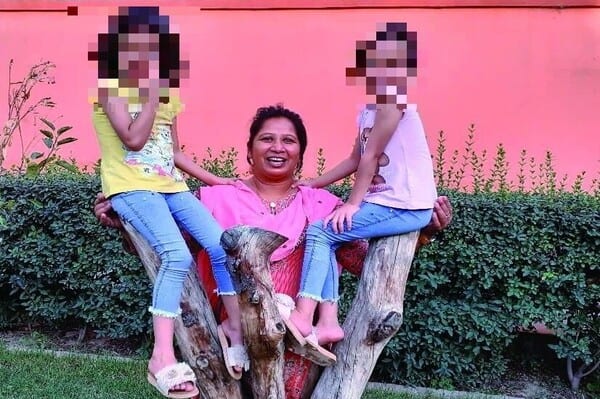Originally from Pakistan, Sister Shahnaz Bhatti is a member of the congregation of the Sisters of Charity of Saint Jeanne-Antide Thouret. She was serving in Afghanistan until August 25, when, in the wake of the Taliban takeover in Afghanistan, she was able to leave the country with the help of the Italian armed forces. She talked about her experiences with Aid to the Church in Need (ACN):
What motivated your work in Afghanistan?
Our congregation took part in the project “For the Children of Kabul.” This project was initiated in 2001 in response to an appeal by Pope Saint John Paul II. I spent the last two years in Kabul together with two other religious sisters, Sister Teresia of the Sisters of Maria Bambina (Sisters of Holy Child Mary) and Sister Irene of the Missionary Sisters of Consolata. We ran a school for children ages 6 to 10 with intellectual disabilities and Down’s syndrome and got them ready to attend public school.
Local teachers, caretakers and cooks worked with us at the school. With the assistance of the Italian authorities, we managed to take not only these members of our staff with us to Italy, but also all their 15 families. At this time, they have been taken in by religious orders, all of whom are truly generous and hospitable. But the families of the children whom we taught there keep calling us to ask for help. They remain in their homes. You can imagine the grave danger these people are currently facing.
What were Sundays like in Afghanistan?
Sunday is not recognized as a day of worship and rest. It is considered a day like any other. At the Italian embassy, however, we were able to discreetly celebrate religious feast days as well as Mass.
What were the greatest challenges that you faced during your mission?
The first challenge was learning the local language because the people in Afghanistan are not taught English. You can’t teach anything without first learning the language. Another challenge was to familiarize ourselves with their habits and their mentality in order to be able to begin a dialogue with the people and be close to them. The most trying thing was not being able to move about freely, because, as women, we always had to be accompanied by a man. For example, it was my job to complete all the necessary paperwork at the banks or other government agencies, but I always had to be accompanied by a local man.
Two women are considered inconsequential and have no say in anything. But the suffering that made the greatest impression on me was when I saw women being treated as things. It was indescribably painful to see young women forced against their will to marry men that the patriarch of the family had chosen to be their husbands.

Was religious freedom respected in Afghanistan prior to the withdrawal of Western military?
No, because the Afghans consider all foreigners from the West to be Christians. We were constantly being monitored and were not permitted to display any religious symbols. We women religious had to clothe ourselves like the local women, without the cross that symbolizes who we are.
What were your experiences this past August?
It was a very difficult time: we were locked up in the house and were afraid. For more than a year, there had been only two of us. As soon as it was possible, the sister who had been with me left and I stayed by myself until the end. I helped our neighbors, the Missionaries of Chair, and their 14 children with severe disabilities get on the last flight to Italy. We would not have left if it had not been possible to save these children. We are indebted to the Italian Ministry of Foreign Affairs and the International Red Cross, which helped us get to the airport, as well as the presence of Father Giovanni Scalese, the representative of the Catholic Church in Afghanistan. He did not leave our side until we left. The journey to Kabul airport was arduous, it took us two hours and there was shooting, but in the end, we made it.
As a Catholic sister and as a woman, how would you assess the attempts of the West to ‘export democracy’ to Afghanistan?
A mentality cannot be changed through good intentions alone. I believe that a mentality can be changed by initiating cultural projects targeting the new generations. We see this in the young women who do not want to give up their civil rights and liberties. However, this can only be achieved by educating the younger generation. You cannot export democracy—it must be cultivated.
What would you say to Western governments with regard to their policies on Afghanistan?
I would ask them to help this country gain true freedom, a freedom built on respect and human and civic advancement. What comes to mind as I say this is that religious fanaticism leads to division and hostility, no one people is better than another and that everyone benefits from peaceful coexistence.
How can we help the people?
We can support them by providing cultural and civic education to help them live as free people and by making it less complicated for them to find refuge in our countries should they decide to leave Afghanistan. Or, if the authorities permit this, we can help by staying with them. I would be the first to return to them. In these times of distress, we would be there for them in the refugee camps that have been set up in neighboring countries. We could keep the little ones from dying of hunger and thirst and from diseases that are easily treatable. It is also necessary to see women as human beings who are worthy of having rights and responsibilities—but most importantly they must be seen as human beings and not things.
This interview is reprinted with permission from the Aid to the Church in Need in the United States







